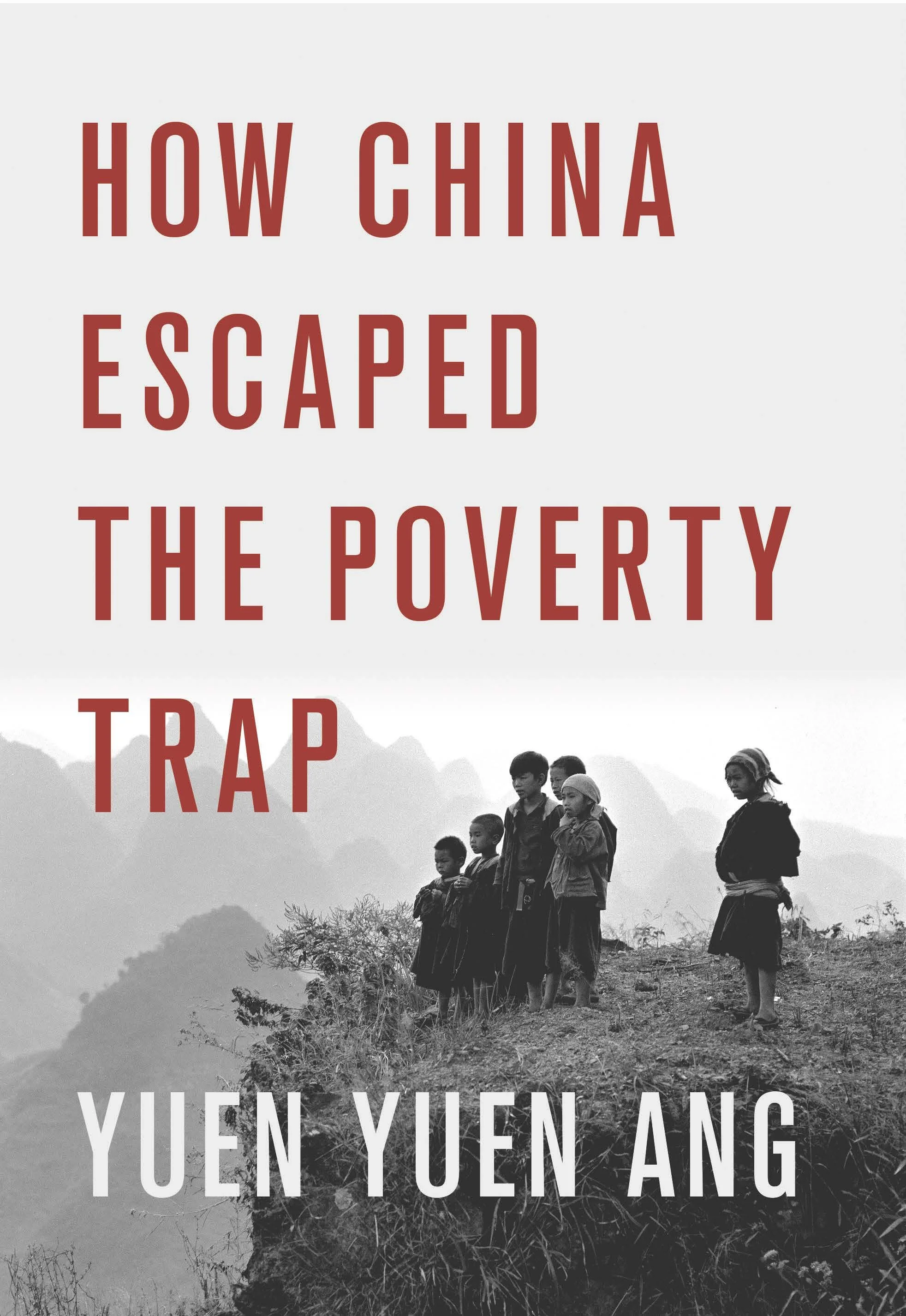
Awards
Yuen Yuen Ang has received awards across the social sciences - political science, economics, and sociology - for “game-changing” and “field-shifting” research, as well as recognition for her policy impact across regions and divides.
How China Escaped the Poverty Trap
China’s Gilded Age
Scholarship & Public Impact
-
Named by Apolitical in 2021
“Great policy research from academic institutions isn’t always able to cut-through and make an impact. But when research does resonate with policymakers, it has the potential to steer the direction of government. Academic research remains a vital source of information and innovation. This is why Apolitical invited public servants to nominate the academics who are the most influential to the work of government. The list of 100 highlights work that has influenced the policymaking process by providing insights into policy problems, contributing innovative ideas and solutions, or adding relevant and informative data.”
See the 2021 inaugural list of nominees here.
-
Inaugural recipient in 2020, awarded by the American Political Science Association (APSA) “to a scholar up to ten years post-PhD whose work has made impactful empirical, theoretical and/or methodological contributions to the study of comparative politics”
Citation: “The award committee received and considered many nominations but in the end we decided to present the very first Theda Skocpol Emerging Scholar award to Professor Yuen Yuen Ang.
ANG’s scholarship evokes the spirit of Theda Skocpol’s contributions to political science. Like Skocpol, her work pushes us to rethink existing theories, concepts, and categories in comparative politics. Ang has written two books and numerous other publications, and was named a Carnegie Fellow. Her first book, How China Escaped the Poverty Trap, was widely recognized for its theoretical and empirical advances, winning the Peter Katzenstein Prize in Political Economy and the Viviana Zelizer Prize in Economic Sociology. It was also named among the “Best Books of 2017” in Foreign Affairs.
The book tackles THE central question of political economy of development: what are the conditions, causes, and processes that can lead countries out of poverty? In recent years, scholars have emphasized the importance of state strength and “getting institutions right.” But ANG goes in a different direction and turns the conventional wisdom that weak institutions hold countries back – upside down. Instead she argues that shows that WEAK institutions actually facilitate growth. This perspective has resonated among experts with deep knowledge of China, has attracted significant attention across disciplines and from the policy community too, and generates far-ranging implications for theories of comparative political science.
Her work represents the best of our field. Congratulations to Prof. Ang!”
-
Awarded by the Carnegie Corporation of New York in 2018
Building on a century-old, philanthropic tradition of investing in creative scholarly research, Carnegie Corporation of New York announced the 2018 class of Andrew Carnegie Fellows. As part of the so-called “brainy award”… A distinguished panel of jurors selected the fellows based on the quality of their proposals. They looked for high-caliber scholarship that applies fresh perspectives to some of the most pressing issues of our times, shows potential for meaningful impact on a field of study, and has the capacity for dissemination to a broad audience.
See the 2018 list of Fellows here.
-
Awarded by the JHU Provost Office in 2025 to support “Five Questions on Shaping a Multipolar World,” in collaboration with Zack Cooper (AEI). We will be convening dialogues through “The Multipolar World & US-China” Roundtables Series in Washington D.C. that Ang directs, followed by an end-of-year symposium.
“Johns Hopkins University and the American Enterprise Institute are pleased to announce a unique grant program through which JHU faculty and AEI scholars will have the opportunity to work together on research, teaching, or other projects and to participate in the intellectual life of each other’s institutions. This program seeks to broaden the points of view and deepen the insights of interested scholars in both institutions; model the virtues of reasoned exchange across difference for students and scholars; build stronger bridges between the academy and think tank sector; and signal to internal and external audiences the importance of bringing a broad range of perspectives into research that carries implications for the nation’s common life.”
See the list of grantees here.
Teaching Awards
-
Awarded by the University of Michigan Ann Arbor in 2022
One of the most wonderful and challenging things about what we teach is that many of our students come in with strong opinions about the topics of our courses. This year’s winner of the Tronstein Award confronts this regularly in her classes. Throughout, she challenges her students to question their assumptions, offers new historical context, and provides local perspectives to encourage rigorous and respectful dialogue.
She has been nominated multiple years and for multiple classes about China and its role in the world. Consistently, her students say that she engages them deeply in "every single one of her lectures." Others remark, “the quality of instruction in this course was phenomenal.” They appreciate how hard she works to humanize her topics and provide an unbiased perspective on the subject matter. Another student says about this challenging 300-level class “I’m only in the first semester of my freshman year, but this class confirms that I will be pursuing a degree in political science.”
See award announcement at UM
-
Awarded by Johns Hopkins University in 2023, to teach “China & the World” with Prof. John Yasuda.
Forty wide-ranging projects and programs to be anchored at Johns Hopkins University's new home in Washington, D.C., have been selected to receive funding support from the university's Nexus Awards program.
The awardees include 102 scholars and researchers representing all nine academic divisions of the university. The winning proposals span a variety of topics reflective of the breadth of the university's scholarship and expertise—artificial intelligence and health policy, the arts and humanities, global health and gender equity, and much more.
Funding coincides with the relocation of the university's D.C.-based academic programs to the new facility at 555 Pennsylvania Ave.
See the list of awardees.
“At times our own light goes out and is rekindled by a light from another person. Each of us has cause to think with deep gratitude of those who have lighted the flame within us.”
~ Albert Schweitzer ~

